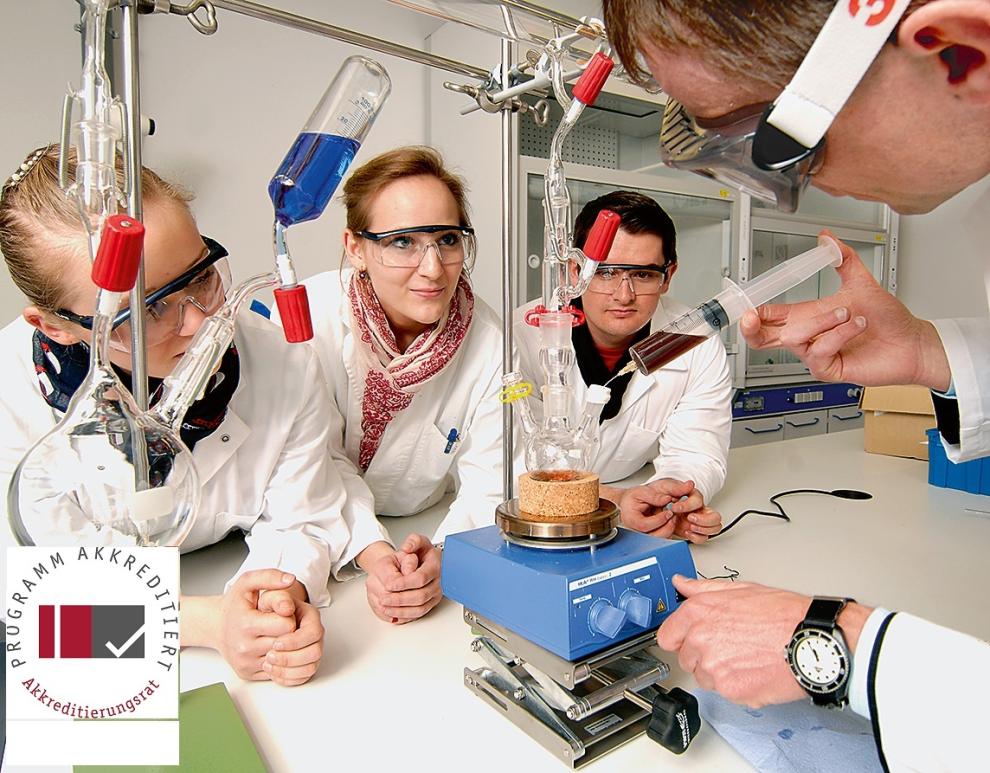Biomaterials Science*
This programme focuses on the study of biocompatible, biomimetic and nature-based materials as well as their diverse areas of application. Biocompatible materials, for example, can be used to create next generation implants with advanced functionality and extended lifespans. Biomimetic materials, inspired by nature‘s countless patterns and organisms, can recreate otherwise impossible materials properties, such as the dazzling colours of butterfly wings. Robust modern polymers present viable alternatives to petroleum-based polymers; particularly in times of increasing oil prices. In fact, many nature-based materials can be produced with a negative CO2 balance. The immense and untapped potential of biomaterials makes them extremely promising sources for future innovations in manufacturing and research.
Course Structure
The Course Structure can be found here.
Our Biomaterials Science undergraduate course utilises English-language teaching and begins with a general introduction into materials science and engineering. This includes basic chemistry, materials properties and their production, as well as materials analysis and simulation while maintaining an industrial context. The interfaces between materials and biological systems are considered in units on natural, biodegradable and biocompatible materials.
Students can tailor the focus of their own degree through their choice of elective modules and themes of their work placements, projects and bachelor‘s theses. The Biomaterials Science degree is completed with units in recycling and ecology as well as modules in applied economics and management.
Career Paths
The Biomaterials Science course teaches knowledge and methods in materials science, making it suitable for career paths in development, production, processing and testing of classical and novel materials. Additional foci on costs, ecology and the various interfaces with biological systems broaden the career spectrum.
Graduates of Biomaterials Science are qualified for a wide range of careers. These include, among others, the materials processing industries; the pharmaceutical and medical industries; food processing; vehicle production as well as furniture design or the leisure industry. Other possible career paths can be found in environmental analysis, recycling, materials testing and in many nongovernmental organisations (NGOs).
Graduates can also continue their studies with a follow on degree course at the master‘s level. One option that is particularly well suited to graduates of Biomaterials Science is a Master of Science in the Bionics/Biomimetics programme offered at Rhine-Waal University of Applied Sciences.
* The degree programmes offered are suitable for part-time study in accordance with §62a HG NRW.
Quicklinks
Information
Place of study
Campus Kleve
Start date
Winter semester
Language
English
Duration of study
7 semesters of full-time study
Study model
Full-time studies
Degree awarded
Bachelor of Science
Internship
Mandatory 8-week preparatory internship/work placement. This must be completed no later than the 4th semester enrolment deadline.
Restricted admission
No
Questions about
Biomaterials Science B.Sc.:
Heads of the Degree Programme
Prof. Dr.-Ing. Raimund Sicking
Phone: +49 (2821) 80673 610
technology-bionics@hochschule-rhein-waal.de
and
Prof. Dr. Neil Shirtcliffe
Phone: +49 (2821) 80673 633
technology-bionics@hochschule-rhein-waal.de
Questions about applying:
Student Advisory Service

